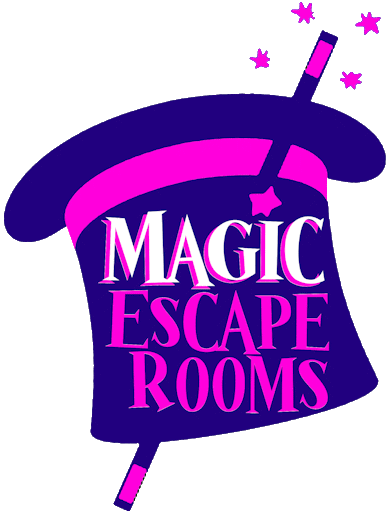Escape Room Design
Linear versus Non-Linear Puzzle Paths Within Room Escape Game Designs
Linear Design: A Structured Path, Solving One Puzzle at a Time
In escape rooms, linear design of puzzle paths have a sequential order of puzzles: solve one puzzle before you can solve another puzzle, and so forth. At our Columbus, Ohio escape room, we try to limit the amount of linear puzzling we use in our games.
Advantages of Linear Puzzle Fl0w in Escape Room Design
Easier to Control Difficulty: A linear puzzle path allows us to gradually increase puzzle complexity, ensuring a smooth learning curve for players. It’s a way to get their collective brains working and juices flowing.
Stronger Narrative Focus: Linearity can help maintain a clear storyline, guiding players through the narrative arc with a sense of progression.
Easy-Peasy Game Mastering: A linear flow of puzzles simplifies the game master's role, as they can anticipate the order players will tackle puzzles.
Disadvantages of Linear Puzzle Flow Within the Escape Room Design:
Limited Player Choice: Linear path design can restrict player agency, not allowing everyone to participate. This is a very common flaw made within escape room design.
Potential Bottlenecks: If team members get stuck on a puzzle, the entire team's progress is often stalled.
Non-Linear Design: A Branching Labyrinth, Multiple People Solving Multiple Puzzles At The Same Time
In our games, when we use non-linear puzzle paths, we do so to keep the entire group busy and excited. This also allows us to inject a bit of confusion into the game, for a bit, while players determine what clues go with what puzzles, leaving them the decision of what they want to solve first. There may not be an incorrect choice.
Advantages of Non-Linear Puzzle Flow in Escape Room Design:
A Plan Comes Together: Multiple solutions and paths create a more dynamic, team experience. Sometimes, we even see new ways a game, or its puzzles, can be solved!
Increased Player Agency: Non-linearity allows players to choose their approach, catering to different players’ problem-solving skills.
Reduced Bottlenecks: If one team member gets stuck, others can progress onto different puzzles, keeping the team moving forward.
Disadvantages of Non-Linear Puzzle Flow:
Balancing Difficulty: Maintaining a balanced difficulty curve across multiple puzzle paths can be challenging.
Complex Game Mastering: Game masters need to be prepared to handle players tackling puzzles in any order, requiring adaptability.
Risk of Confusion: A non-linear layout might confuse players, making it crucial to provide clear initial instructions, clues, and even hints.
The Sweet Spot: Combining Both Approaches
We find our escape rooms have better playability when combining elements of both linear and non-linear design. The core storyline and some key puzzles might follow a linear structure while also offering opportunities for players to tackle an array of puzzles in a non-linear order. This provides a balance between maintaining narrative focus and offering some player agency. But can also be more difficult to develop and perfect in the escape room design.
How can we know if it works? We BETA test over and over. We adjust. We fix things. We change things up. We add elements. We take away elements. We update clues. This is how a game gets refined and becomes better over time.
How We Design the Right Puzzle Flow for Our Room Escape Games
The ideal escape room flow depends upon the type of game we are designing and where we want to take our audience (the players). When designing, we find it helpful to work backwards from a big ending to where and how we want the players to progress through multiple rooms to get there. What will they do? What will they experience? How will they feel? What do we want to do to our players?
EPILOGUE
In the Magician’s Secret, our initial escape room offering in Columbus, Ohio, we begin with non-linear puzzle paths that can be followed by several people working at the same time. We give instruction from the start to eliminate some confusion. As players progress in the first room, we bring them together as the puzzle path becomes linear in order to progress as a team to the next room. Later in the game, we add some confusion with non-linear tasks, but then it all eventually comes together for a dramatic, suspenseful finish!


